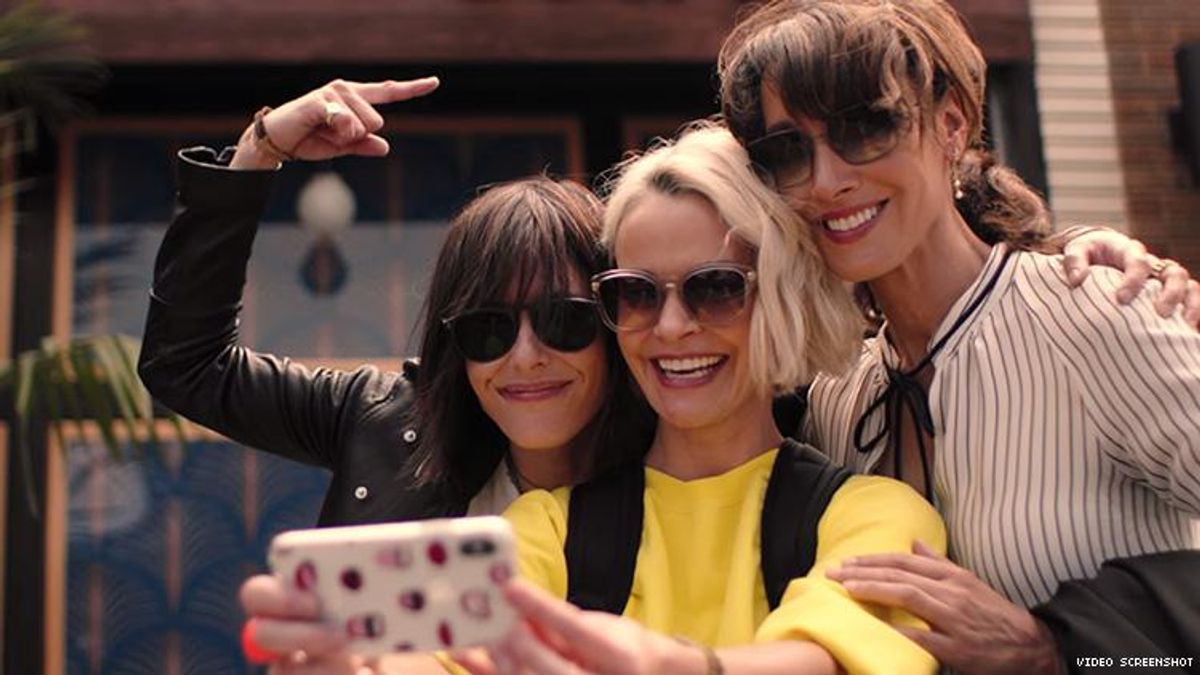All Rights reserved
By continuing to use our site, you agree to our Private Policy and Terms of Use.
With less than a month before the premiere of The L Word: Generation Q, the new revamp of Showtime's drama The L Word, the energy is high as lesbians and queer folks everywhere join rewatch parties, scrambling to finish all previous six seasons before December 8. I'm one of those lesbians who watched the show countless times (more the early seasons before Jenny is unbearable). Still, I was ready in 2009 for it to end when it did. I, like so many of us, thought, That was a good start for lesbian-centered dramas. They messed up, but paved the way for what comes next. And yet, here we are a decade later and so very ready for them to come back.
I'm the type of queer whose interest in a show increases exponentially when there's any non-hetero plot line (lesbian bonus points), which also means I've spent the last 10 years since The L Word ended getting my heart broken across several shows, time periods, and dimensions. And it's a slow death too. Whoever set the standard that it's good TV to draw out the question or tension of a lesbian plot line over a multi-episode and sometimes season-spanning stretch, just to crush our dreams by killing a character or a connection immediately should be fired and replaced with a queer person.
Trending stories
I miss plot lines that don't revolve around someone's internalized or even external homophobia. I want relationships that fail or succeed and are exciting because of the people and their own relatable toxic behaviors and incompatable zodiac sun-moon-rising signs, not because they're queer. Even when there is queer represenation, there's still only one likable, deep, multi-dimensional character per show.
But brimming underneath the social planning, the cuddle-parties, the shared community countdown, what I'm also feeling is an energy of indignation and the collective readiness of a community of queers ready to attack. As queers, we can have a ridiculously critical eye on anything marketed to us, and high expectations for it to be everything to everyone of us, individually and equitably. Meanwhile "mainstream" shows like Two and a Half Men continue to run for 13 seasons with their problematic themes and characters unchallenged.
I'm excited to watch, and emotionally ready to be disappointed by the new L Word. As a first generation American, biracial, queer lesbian femme, no one in TV has ever or will likely ever have my story shown back to me. Trust me, I'll have my own critiques. And I intend to use the technology of the times to share constructive feedback, with the belief that that the folks in power guiding this work do in fact want to do better, and are in fact willing to hear what we have to say. We've already seen some of that in the new casting, and I've already heard enough critiques of the small snippets they've released of the new show to feel the need to write this piece.
Please, fellow queers, when we share our thoughts, opinions, and yes, critiques, can we share them with some understanding that anyone trying to represent an incredibly diverse population, while also making engaging and entertaining content, is in a nearly impossible position? The experience of being a lesbian or queer is incredibly unique, and while we share identity terms, all other aspects of our experiences are beautifully diverse. While we take to Twitter at the watch parties, we should challenge where cancel culture and more-social-justice-minded-than-thou sentiments run too deep and freely. Can we consider the privilege of feeling safe enough to shout out critiques from a rooftop? Consider the tower of privilege we may be sitting on when we throw our stones at people who are willing to take on the challenge of telling our stories, and how much easier it is to critique something from the safety of our couches than to take the risk of going out and creating something.
Yes, let's hold producers to high standards and continue to advocate for more types of representation; for more shows like Pose, and more QTPOC, Black, indigenous, asexual, intersex stories. Let's continue to ask for more than one storyline in a show that centers non-hetero people. Let's try to share our feedback and critiques in a way that doesn't immediatly shut down the most lesbian-centered representation television show we have.
Let's live up to our word. Let's be better. Let's be part of the process. Let's give them a chance.
Bex Mui, she/her, is a queer social justice advocate working in LGBTQ-educational advocacy.


















































































